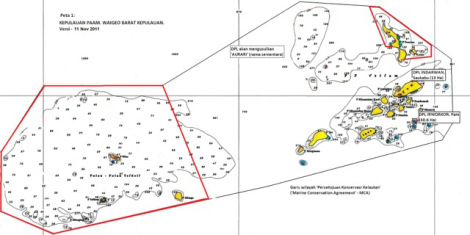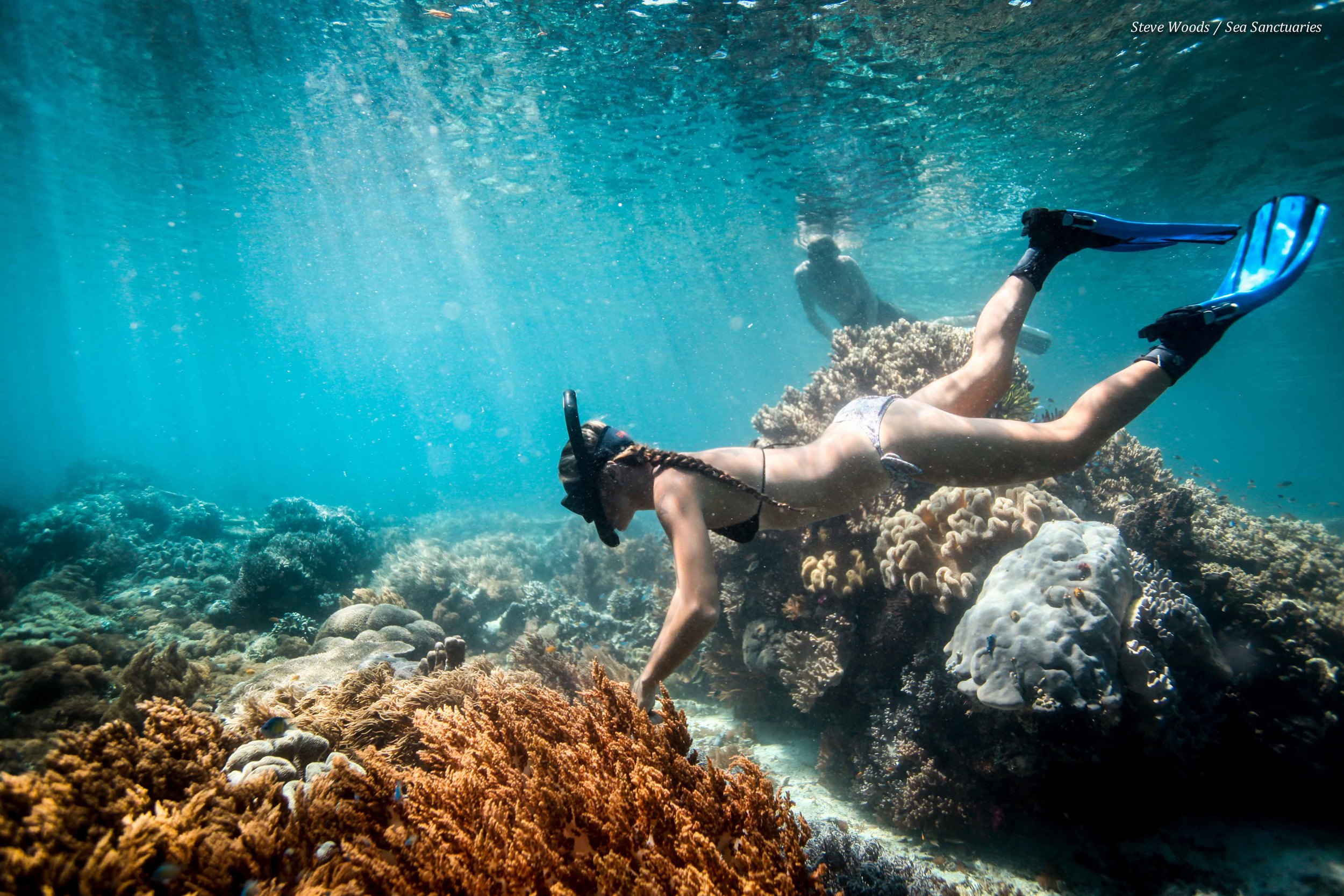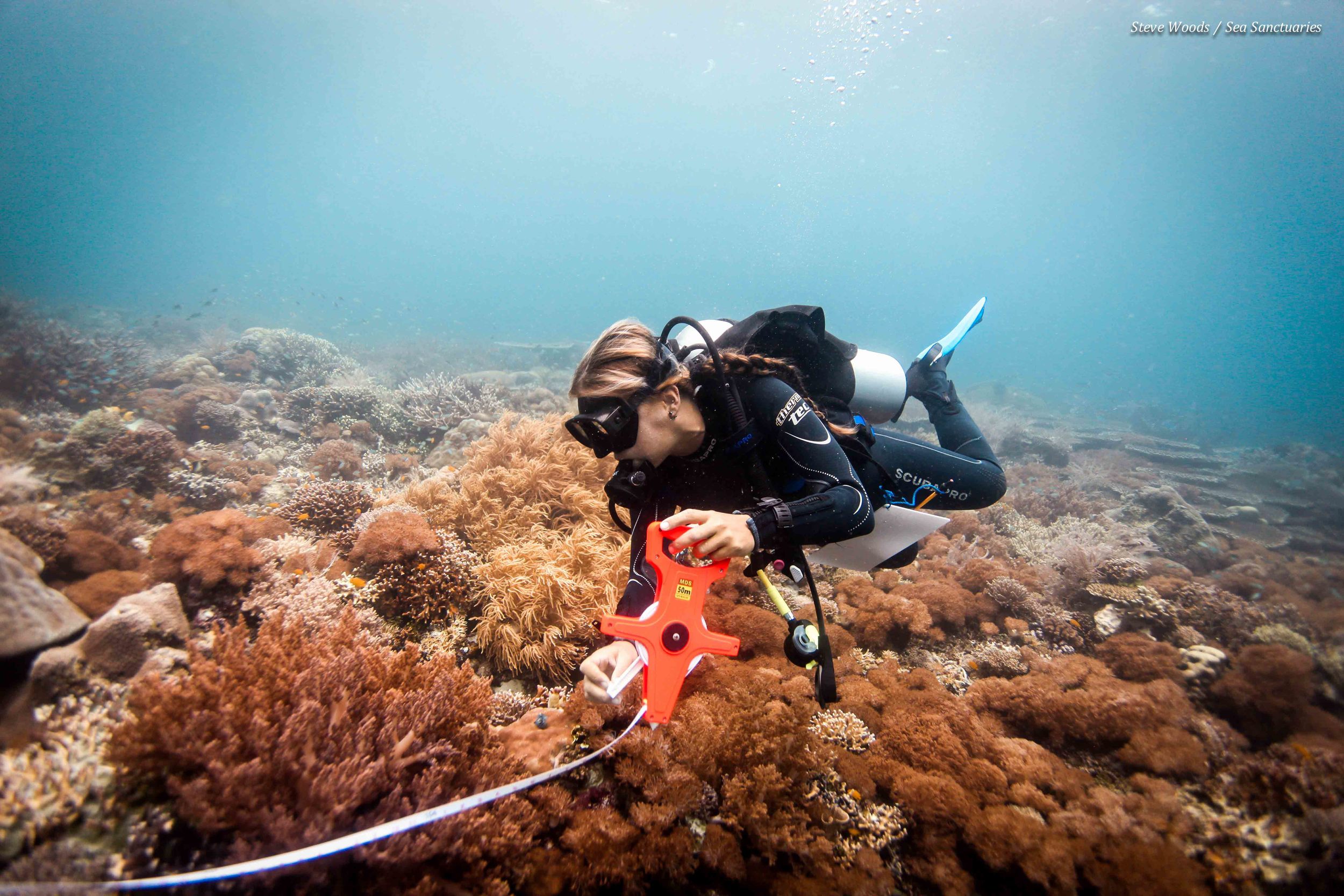Conservation Programmes
CONSERVATION PROGRAMMES
Marine Conservation
We need to know the general condition of the main habitats and the area they cover so that we have a good idea of the environmental health of the conservation area. We also want to understand the distribution of the main commercial fish and invertebrate population, their biomass and diversity. In early 2013 (Phase 1), our director of conservation and volunteers conducted this research and we are now moving into long term monitoring (phase 2).
Without going into the science part too much, we want to answer 3 main questions:
- How will the habitat conditions and fish populations change over time?
- Will the NTZ improve fish catches outside the NTZ and by how much? (To compensate local communities for giving up fishing rights inside the NTZs)
- Are there any noticeable impacts from marine tourism and other activities?
Once we answer these questions we can develop strategies to decrease/eliminate negative impacts and also prove the positive impact the NTZ has long-term, in terms of conservation and the benefits for local communities.
Marine Conservation Programme:
Phase 1
Volunteer with us and take part in the following surveys:
Manta Tows - rapid, shallow habitat surveys
Towed behind a small boat, snorkellers will estimate habitat coverage such as coral, sea grass beds, sand, rock and other matters of interest.
Long swim surveys – basic habitat, condition and fish data
Diving surveys along 0-12m depth contours, carried out at different times of tide, day and moon phase to understand where and when fish aggregate. This will give us a good understanding of the entire NTZ to determine which sites will be best for long-term monitoring.
Fish catch data collection
Working with local fish buyers, the daily catch, species and length data is recorded. This survey will continue throughout Phase 1 and Phase 2 of the programme
.
Marine Conservation Programme:
Phase 2
Once Phase 1 is complete, we will start our long-term monitoring programme:
Transect surveys – site specific habitat condition and fish population
Using permanent transect lines, repeated dive surveys are carried out long-term to collect detailed information on the condition of habitat and fish populations.
Fish catch data collection
Continued from Phase 1
What you will learn
As a volunteer you will learn how to plan and conduct surveys using the techniques above, depending on which phase you join us.
Obviously you also get the unique opportunity to live and dive in Raja Ampat and contribute towards the long-term conservation of the most biodiverse marine environment on the planet.
Read on to find out how you will be involved in our Community Projects >





